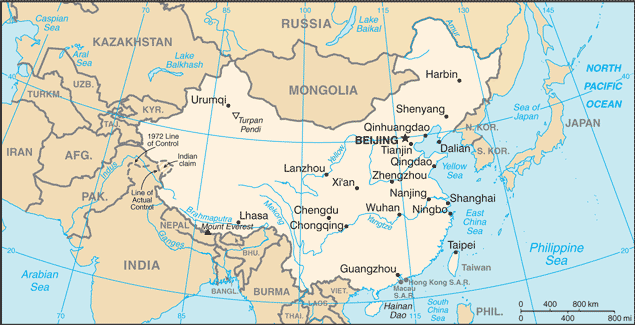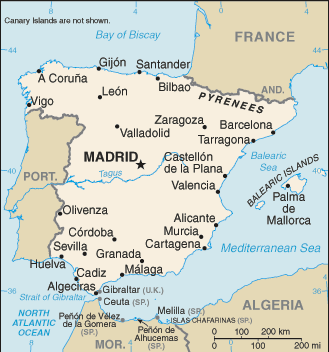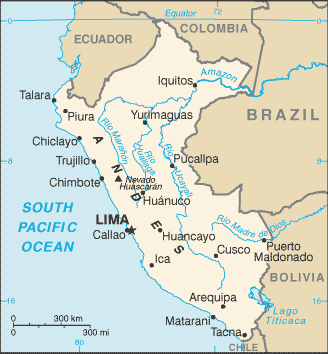 On June 26, International Day against Drug Abuse and Illicit Trafficking, China's Supreme People's Court announced with pride that a whopping 39,762 have been sentenced for drug-related offenses in the People's Republic the first five months of 2014, up more than 27% for the same period last year. The official state news agency Xinhua reported that a total of 9,168, or about 23%, were sentenced to more than five years, life imprisonment, or death. A quoted SPC official made much of a supposedly growing drug meance. "Drug-related crimes have been spreading from bordering and coastal areas to the country's inland," said deputy jurist Ma Yan. South China's Guangdong province, with its booming export zones and free-wheeling capitalism, has topped the list since 2007. Yunnan and Guangxi, bordering Southeast Asia's opium-producing Golden Triangle, also continued to report high rates of drug-related crimes. But such cases are also mushrooming in inland Chongqing and northern Liaoning, Ma said. No breakdown was provided of the substances in question, but a proporiton of the cases certainly included cannabis.
On June 26, International Day against Drug Abuse and Illicit Trafficking, China's Supreme People's Court announced with pride that a whopping 39,762 have been sentenced for drug-related offenses in the People's Republic the first five months of 2014, up more than 27% for the same period last year. The official state news agency Xinhua reported that a total of 9,168, or about 23%, were sentenced to more than five years, life imprisonment, or death. A quoted SPC official made much of a supposedly growing drug meance. "Drug-related crimes have been spreading from bordering and coastal areas to the country's inland," said deputy jurist Ma Yan. South China's Guangdong province, with its booming export zones and free-wheeling capitalism, has topped the list since 2007. Yunnan and Guangxi, bordering Southeast Asia's opium-producing Golden Triangle, also continued to report high rates of drug-related crimes. But such cases are also mushrooming in inland Chongqing and northern Liaoning, Ma said. No breakdown was provided of the substances in question, but a proporiton of the cases certainly included cannabis.
 In the past few years, Spain's freewheeling Mediterranean port city of Barcelona has come to rival Amsterdam as Europe's premier cannabis scene, with a proliferation of clubs where merry-makers openly light up. Now the Public Health Agency of the Generalitat de Catalunya has proposed tight new measures to regulate the clubs, and discourage the burgeoning cannabis economy.
In the past few years, Spain's freewheeling Mediterranean port city of Barcelona has come to rival Amsterdam as Europe's premier cannabis scene, with a proliferation of clubs where merry-makers openly light up. Now the Public Health Agency of the Generalitat de Catalunya has proposed tight new measures to regulate the clubs, and discourage the burgeoning cannabis economy.
 Amid mounting concern about the ecological impacts of outdoor cannabis grows in California's Emerald Triangle comes news of last week's massive raid on the
Amid mounting concern about the ecological impacts of outdoor cannabis grows in California's Emerald Triangle comes news of last week's massive raid on the  The media (
The media ( In another sign of the new progressive tilt in New York City politics, the
In another sign of the new progressive tilt in New York City politics, the  On June 26,
On June 26,  Cannabis cultivation is emerging as an issue in the American West's interminable conflicts over control of water. On May 20, the US
Cannabis cultivation is emerging as an issue in the American West's interminable conflicts over control of water. On May 20, the US  Members of the group
Members of the group  OK, here comes the latest media blitz in the backlash against the recent gains for cannabis legalization... The
OK, here comes the latest media blitz in the backlash against the recent gains for cannabis legalization... The 





Recent comments
2 weeks 5 days ago
3 weeks 5 days ago
7 weeks 5 days ago
11 weeks 3 days ago
15 weeks 3 days ago
16 weeks 2 days ago
26 weeks 2 days ago
30 weeks 2 days ago
31 weeks 3 days ago
31 weeks 3 days ago